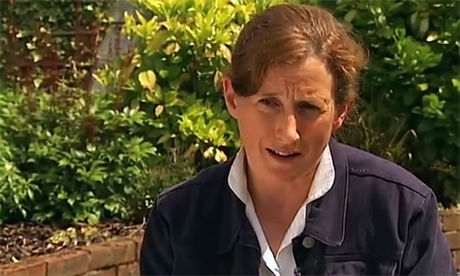In recent weeks there have been unsubstantiated claims in New Zealand media by pro-euthanasia, retired doctors or ‘veteran medical specialists’ around the End of Life Choice Act, which will be voted on during the upcoming referendum.
As specialist doctors trained in palliative medicine and currently practising in New Zealand, we’re extremely concerned at their argument in favour of euthanasia.
It’s wrong and it’s dangerous says Dr Sinnead Donnelly, a practicing palliative care specialist.
First, they argue in favour of euthanasia because, in their words, palliative care has been “underfunded from the start and access and quality are patchy”.
They say that aged residential staff “are overworked and often poorly trained in palliative care for the dying”.
In other words, they want us to vote at the referendum in favour of euthanasia due to inadequacy and inequity of palliative care and inadequate aged residential care staffing.
This is a little like arguing that the car needs a clean so should be pushed off a cliff. When have we, as a society, agreed to prematurely end the lives of patients due to poor funding?
In any other situation that would be called callous and unacceptable. It certainly doesn’t pass the kindness test.
The second irresponsible statement is that “the End of Life Choice Act is one of the safest in the world”.
It is not.
It is a little like arguing that the car needs a clean so should be pushed off a cliff
The Act’s claimed protection against pressure from “another person” is poorly drafted and provides inadequate levels of protection to vulnerable New Zealanders.
For example, the Act requires only one doctor (the first doctor to whom a request for euthanasia or assisted suicide is made) to only “do his or her best” to ensure that person requesting euthanasia has expressed their wish “free from pressure” by “any other person”.
The Royal New Zealand College of General Practitioners, the very doctors who are also going to be on the front line of the process, told Parliament they won’t be able to detect coercion or pressure in all cases with this test, and that there will be wrongful deaths under this law. To wit:
“The College … considers clause (h) where the medical practitioner is required to ‘do his or her best to ensure that the person expresses his or her wish free from pressure’ is problematic.
“As one member wrote: ‘It will prove impossible to determine if a patient is ‘free from coercion’.
“What criteria will doctors use to determine whether or not coercion exists?
“If patients request assisted death, there is no provision in the Bill as to what a doctor should do if she or he thinks that coercion is actually present.
“Coercion of patients will be impossible to discern in every request for assisted death.
“Doctors will not be 100 percent correct in their assessments of coercion. Wrongful deaths will be the result of this proposed new law.'”
Under the Act a person could be dead within only a matter of days after being diagnosed, and without needing to tell any loved ones.
It’s for this (and many other) reasons that both the World Medical Association and the New Zealand Medical Association state that euthanasia is medically unethical.
It’s no surprise then that more than 1500 New Zealand Doctors have signed a petition under the ‘Doctors Say No’ banner.
It’s not just doctors sharing this concern.
Richard McLeod, representing Lawyers for Vulnerable New Zealanders, has advised that: ” … under the Act a person could be dead within only a matter of days after being diagnosed, and without needing to tell any loved ones.
“There’s no mandatory cooling-off period between a request and the final lethal injection.
“That’s a serious flaw because terminally ill people can go through a whole range of emotions from day to day.
“If they’re caught in a moment of weakness and have the wrong people around them they could be dead within 72 hours”.
Just think about that scenario for a moment. Imagine receiving a phone call out of the blue that the body of your daughter is ready for your collection. Or getting news that your father was killed by a lethal injection because he feared life with prostate cancer.
These scenarios are entirely possible under the Act.
Every week as doctors we see cases where disabled, sick or mentally ill patients will, at their most vulnerable point, contemplate suicide.
With the right care and medicine the vast majority are brought out of this vulnerable state to a place of health. Under the proposed Act, those same people could be dead within 72 hours.
As doctors caring for people who are dying every day we know the difference that this legislation will make to vulnerable people.
It will expose the vulnerable to the extraordinary burden of a duty to die. We are voting no and we invite you to join us in opposing this Act.
- Dr Sinéad Donnelly is a practicing palliative care specialist
